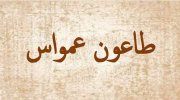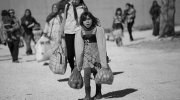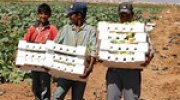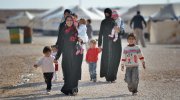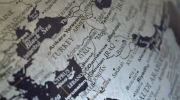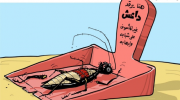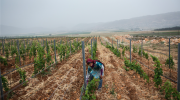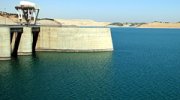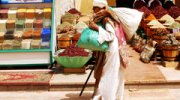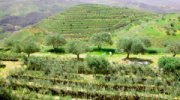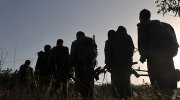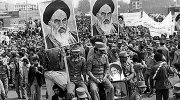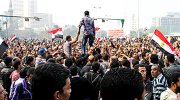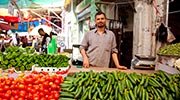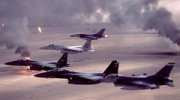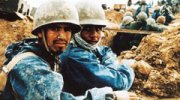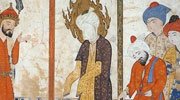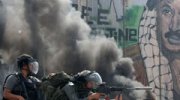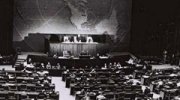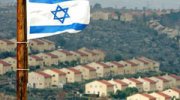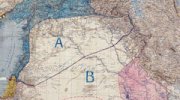-
All fact sheets
All fact sheets
To suggest a fact sheet topic you would like to see covered by the WANA Institute team, contact us today.
Human Development Index: A Turning Point in the Human Development Discourse
The Human Development Index, known as HDI is a statistical tool which measures the average achievements in a country in terms of the major dimensions; income, health and education. This index has helped in broadening the controversial dialogue of wellbeing and takes it beyond the significant but l...
COVID-19 and the Plague of Amwas
An historical account of the Plague of Amwas became significant for the quarantine measures that authorities under the Caliph ‘Umar bin al-Khattāb (644/23) took to contain its spread and the number of prominent Companions that had died. For many in the region, the story of Amwas supplied the ethica...
Refugees in-Law
Although not a signatory to the 1951 Refugee Convention or the 1967 Protocol Relating to the Status of Refugees, Jordan has been considered a welcoming host for refugees even before it was founded as a kingdom. This factsheet present refugees definitions in the Jordanian and International laws.
Syrian Refugees and Social Cohesion in Jordan: A Closer Look at Farming Communities in the Jordan Valley
Farming plays an instrumental role in Jordan's society, a field that has broght together Jordanian and Syrian workers. This factsheet highlights some of the findings from three focus groups about social cohesion in Jordan’s farming communities. The focus groups were conducted in al-Ghor region of Jo...
The Syrian Refugee Crisis in Jordan and Its Impact on the Jordanian Economy
In late 2016 — just months after the signing of the Jordan Compact — the WANA Institute and Mercy Corps set out to measure the impact of Syrian labour on Jordan’s economy. This research initiative, which has spanned two years, has resulted in several publications. The key statistics included in the ...
The Ongoing Drivers of Violent Extremism in Jordan, Tunisia, and Lebanon
Despite the military defeat of Daesh, many of the drivers which initially encouraged individuals to join a violent extremist group have not been addressed. Radicalisation does not occur in a vacuum and it has been increasingly shown that individuals adhere to violent extremist ideology because of co...
Counter-Narratives in Preventing/Countering Violent Extremism (P/CVE)
The battle with violent extremism is predominantly ideological. The military defeat of violent extremist groups only constitutes one piece of a large puzzle; the rest remains in countering the broader radical ideology. This fact sheet discusses current media approaches to managing radical narratives...
Economic Commitments of the European Union - Jordan Compact
The Jordan Compact is an aid partnership drafted at the Supporting Syria and the Region Conference that took place in London in February 2016. The partnership aims to help meet long-term development goals rather than provide short-term humanitarian assistance to support host communities that have be...
Women and Countering Violent Extremism (CVE)
It has been suggested that 3,000 of the 20,000 foreign fighters who have travelled to join Daesh have been women, and while focus has primarily been upon those who came from the West, women from the WANA region were also drawn to the cause. A discussion about the relationship between gender and viol...
Syrian Refugee Livelihoods in Jordan
The Jordanian government began granting Syrian refugees limited employment rights in April 2016. This fact sheet provides a snapshot of the labour market dynamics — both in terms of distribution across sectors and wage levels — that frame the context in which expanded worker rights have been provide...
Higher Education Opportunities Available to Syrian Refugees in Jordan
This fact sheet provides an overview of higher education opportunities available to refugees from Syria in Jordan, framed within the context of the Jordanian higher education system.
The Effect of International Funds on the Development Process in the WANA Region
How do foreign funds influence the development process in the West Asia - North Africa region, and how can we ensure a win-win situation?
Think Tanks in West Asia - North Africa
Think Tanks can be defined as policy research institutes that conduct and disseminate research, and advise policy-makers to design effective public policy. There is surprisingly little knowledge on what the role of think tanks is, why academic research is not widely used to inform policy-making, as ...
Violence Against Women in the WANA Region: A Legal Perspective
Regrettably, violence against women is a very common phenomenon throughout the West Asia and North Africa (WANA) region. When using the phrase “violence against women”, the general picture that comes to mind is that of a woman being beaten, harassed, or raped. However, it is important to be aware th...
The Road to COP21
Last month, world leaders assembled in Paris for COP21 to discuss the mechanisms by which the global community can combat climate change. In this fact sheet, Research Fellow Dr Laylla Rkiouak summarises the leadup to COP21, its key events, and what to bear in mind as we move forward.
CO2: Carbon Dioxide
Carbon dioxide (commonly referred to as CO2) is a colourless and odourless gas. Over the past few years, CO2 has increasingly been referred to as a ‘problematic gas’. Why has this fairly unreactive gas, which exists at room temperature and pressure, gotten itself such a bad reputation?
The water-food-energy nexus
The nexus refers to the connection between the water, food and energy sectors. It is an approach used to understand dependencies: one nexus element cannot exist without the other, and changes to one will impact another. While sectors have previously been dealt with in isolation, a nexus approach can...
Food Security
The World Food Summit in 1996 defined that food security exists when all people, at all times, have physical and economic access to sufficient safe and nutritious food that meets their dietary needs and food preferences for an active and healthy life. Supply and access to nutritious and safe food is...
The concept of Al Hima
Al Hima is a traditional rangeland management system, which has been established in the Arabian Peninsula region by tribal peoples. They depended on sustainable land use patterns that would assure long-term survival in the face of scarce resources, particularly water. The term ‘Al Hima’ means protec...
Virtual water trade in the WANA region
The WANA region is notable for its dry climate and scarce water resources. How to preserve these scarce resources has long been a topic of debate. Given the large amounts of water required to grow food, countries in the region are increasingly opting to rely on food imports rather than on domestic a...
Beyond the ballot box: Violent extremist Islamism
Although modern Islamism stems from Egypt’s Muslim
Brotherhood, the ideologies that developed in its wake went far beyond its founder’s aspirations for a return to religious fundamentals. This ideological evolution is best evidenced in the creation of al-Qaeda. This factsheet is part of a broader s...
Shia Islamism and Iranian Influence
In 2006, as Iraq’s Shia majority watched the execution of former President Saddam Hussein, one clear victor emerged from America’s controversial war: Iran. Iraq’s transition from Iran’s fierce enemy, to probable ally was a major success for the Islamic Republic and one of the biggest shifts in the r...
The Rise of Islamism and the Muslim Brotherhood
The fall of the Ottoman Empire in 1924 triggered a crisis in the Muslim world, challenging Islam’s position in the world order. Particularly with the rise of the nation-state, Muslims’ transnational Ummah, or community, faced potential political diminution. This crisis provoked a new wave of thinkin...
Water security in the WANA region
Water security is essential for economic development, livelihoods, ecological sustainability, human dignity and conflict resilience. The particular importance of water security for the WANA region arises from a unique set of circumstances reflecting all factors influencing water security.
Renewable energy in the WANA region
The WANA region is typically associated with non-renewable energy in the form of oil and gas. Arab countries alone are estimated to hold 43% of the world’s proven reserves. Despite this, the WANA region is home to cutting edge renewable energy projects, particularly in the countries of the Gulf sub...
The Advent of Legal Empowerment Approaches
Particularly since the 1990s, international development assistance has focused on programming aimed at strengthening the rule of law in both developing and conflict-affected societies. The dominant approach has been activities geared towards strengthening the formal justice system, however in the la...
Chronic Conflict in Iraq Part 3: The 2003 Invasion
The 2003 Iraq War was a US-led invasion of Iraq to remove Saddam Hussein and the Ba’athist regime from power. The principal justification for the invasion, as argued by the US and UK, was that Iraq was in possession of weapons of mass destruction (WMD). As with the 1990/91 Gulf War, the Iraqi milita...
Chronic Conflict in Iraq Part 2: Invasion of Kuwait and 1990 Gulf War
On 2 August 1990 Iraq invaded Kuwait; six days later Saddam Hussein announced the annexation of the small Gulf state as an Iraqi province. By 16 January Iraqi troops remained in Kuwait and a day later an international coalition led by the United States (US) commenced ‘Operation Desert Storm’. The al...
Chronic Conflict in Iraq Part 1: The Iran-Iraq War
The Iran-Iraq War was a conventional armed conflict between the Islamic Republic of Iran and the Ba’athist Iraqi Republic. It began with Iraq’s invasion of Iran on 22 September 1980 and ended with a ceasefire commencing 20 August 1988.
Sunni and Shia Islam: Historical Context to Modern Conflict
After the death of the Prophet Mohammad in 632 CE, the Muslim community diverged over how to select the next leader of the Islamic community they had formed on the Arabian Peninsula. One group supported succession by Ali, the Prophet Mohammad’s closest male family member. Many of these believers wou...
1967 Arab-Israeli War and Resolution 242
The Arab-Israeli War, also referred to as the Six-Day War, was a bloody and decisive battle fought between Israel and an Egyptian-Syrian-Jordanian alliance. It led to the Israeli occupation of the West Bank and Gaza, and has had a lasting impact on subsequent attempts to forge a final status peace a...
The Balfour Declaration
The Balfour Declaration (2 November 1917) was a statement of support by the British Government, approved by the War Cabinet, for the establishment of a national home for the Jewish people in Palestine. At the time, the region was part of Ottoman Syria administered from Damascus. While the Declaratio...
1947 Partition Plan and 1948 Establishment of the State of Israel
Following Britain’s announcement that it intended to terminate its mandate over Palestine in 1947, a plan to partition Palestine into two states joined by an economic union was devised and adopted by the United Nations General Assembly (Resolution 181, November 1947).
Settlements
Settlements remain one of the most controversial aspects of the Israeli occupation. Israel’s systematic and expansive policy of developing Jewish communities represents a threat to Palestinian statehood and undermines Israel’s international reputation.
Sykes-Picot Agreement
The Sykes-Picot agreement divided the Levant into spheres of influence between France and Britain. These lines still exist today as Iraq, Jordan, Lebanon, Palestine and Syria. The political and demographic upheaval created by these new borders continued well after independence.
Oslo Accords
The Oslo Accords (1993-1999) were a series of agreements forged in an attempt to negotiate an Israel-Palestine peace agreement. Although the Accords were ultimately ineffective, they represented a breakthrough in Israel-Palestine relations and have shaped the administration of the Occupied Palestini...


